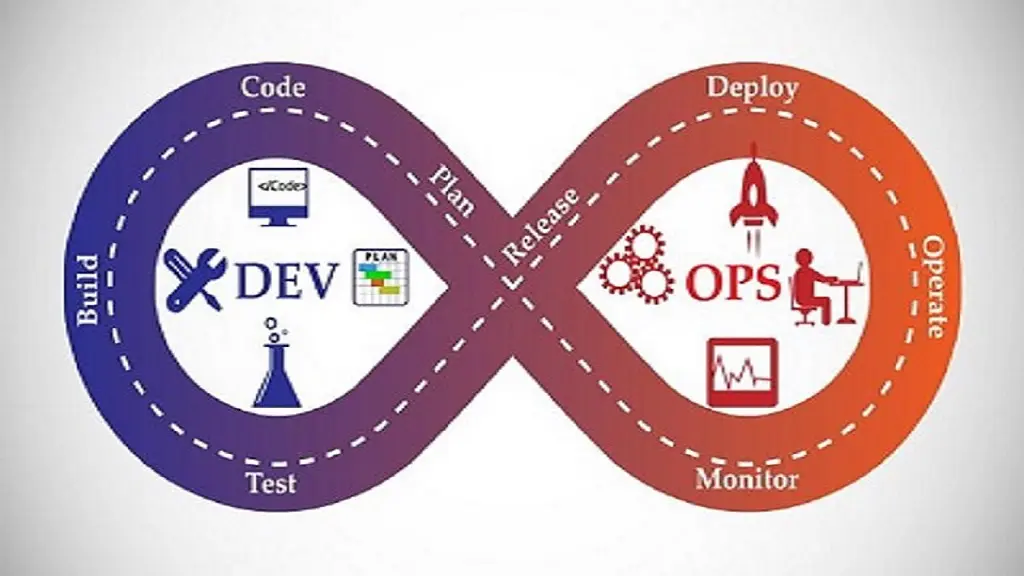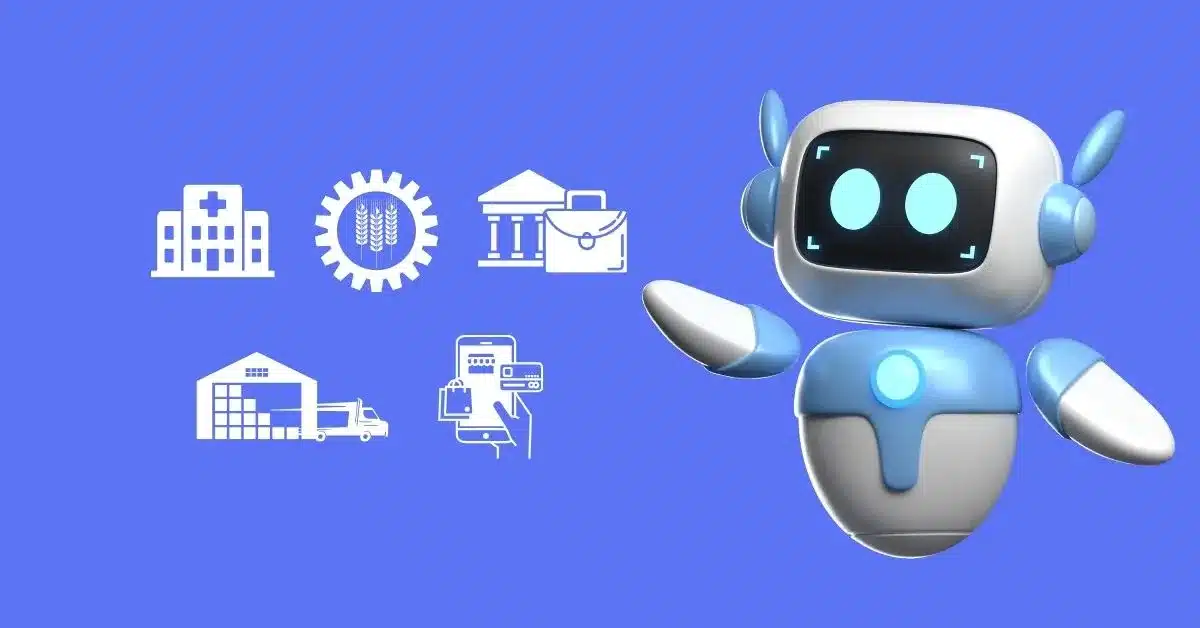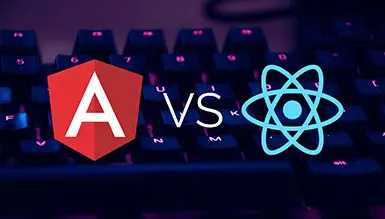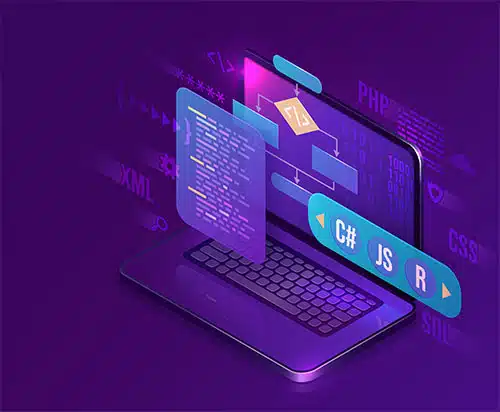The great debate of Node.js vs PHP is something everyone should consider when starting a new project. Whether it’s for a new company endeavor or an individual pursuit, knowing the best tools to use is essential. Node.js and PHP functions serve very similar functions. They are both languages that compose the backend of dynamic websites. Although they have commonalities in purpose, each has unique components to offer.
Comparison between Node.js and PHP: An Overview
Hypertext Preprocessor (PHP) is a free and open server-side scripting language originally developed by Rasmus Lerdorf in 1994. It has been phenomenally successful since its creation. According to a recent survey, PHP is utilized as a server-side programming language by 78.9% of all websites.
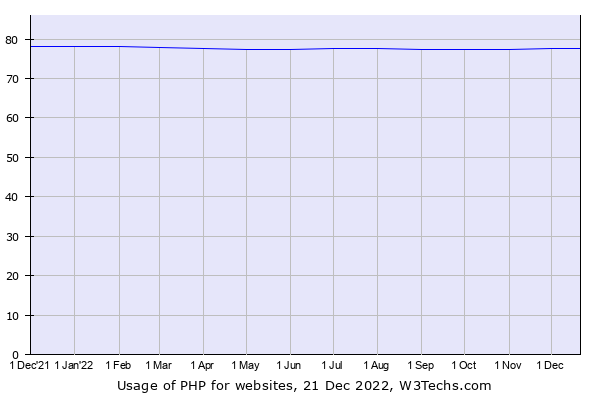
However, Node.js is a free, open-source, cross-platform runtime environment that can carry JavaScript’s code execution beyond the confines of a web browser. With Node.js, programmers may utilize JavaScript to construct command-line tools and server-side scripting (generating dynamic web content on the server before sending it to the visitor’s browser).
The purpose of Node.js is to standardize the creation of JavaScript-based web applications. Designed by Ryan Dahl in 2009, it is rapidly gaining traction in the developer community to create scalable and speedy apps.
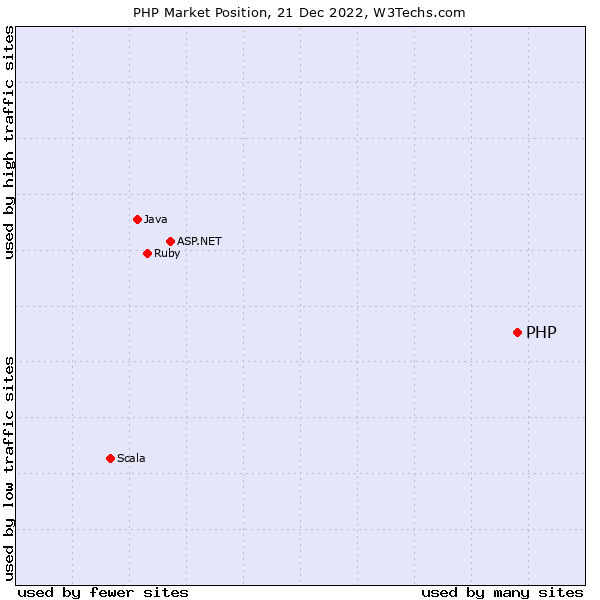
Regarding the backend creation, the two systems are very distinct. PHP’s primary goals are to be adaptable and user-friendly during the web development process, while Node.js’s primary goals are to be faster and offer more data organization choices. Let us take a deep dive into comparing the two to help you make an informed choice on which technology to choose for your projects.
When it comes to mobile applications development, there are essentially two major methods that can be used. These two methods let’s look at the advantages of Node.js speed, its disadvantages, the advantages of PHP speed, its disadvantages, and compare the two versus one another.
What is Node.js?
Created in 2009, Node.js introduction is the new kid on the block compared to other back-end programming languages. However, it’s risen to popularity for a reason. Node.js use enabled the ability of people to program on the server-side in JavaScript. This new development created a small revolution in the programming world, as sites began to emerge with both front-end and back-end fuelled by JavaScript stacks.
On the slightly more technical side of things, Node.js vs javascript use, javascript node functionality, It’s an open-source runtime environment. It is primarily known for its ability to execute asynchronous programming. For those that aren’t aware, asynchronous code can instantly run all code, while synchronous code runs line by line.
Also, Read- Why Node.Js Is the Best Framework For Developers?
Advantages of Node.js functionality
- Can program on the server-side in JavaScript
- Open-source JavaScript run time environment
- Asynchronous code – can instantly run all code
- Quick server-side response time
- Coding commands run unusually fast
Disadvantages of Node.js Capabilities
- Fairly new to the coding world
- Lacks much support on content management systems
- Accounts for only about 0.4% of websites
What Makes Node js Special?
Is Node js better than PHP? Node.js capabilities have incredibly quick server-side response times because of its event-driven I/O model that is also non-blocking. Additionally, because it uses Google Chrome’s V8 engine, coding commands run unusually fast. These are just a few reasons why javascript Node.js speed stands out among other programming languages.

What is PHP?
In contrast, PHP was developed in 1994 and is one of the most popular back-end programming languages. Rasmus Lerdorf created it intending to help web apps development. The vast majority of websites are built with PHP frameworks in large part because systems like WordPress use it. Websites with PHP tutorials far outnumber sites with Node.js use, despite the latter’s rising popularity.
Advantages of PHP Performance
- One of the most popular backend programming languages
- The vast majority of websites built with this code
- WordPress uses this code
- There are far more websites that use this code than those that use Node.js
- A strong community of coders who understand the language
- Has been around since 1994
- As of 2018, over 80% of websites built using PHP
Disadvantages of PHP
- Operates slower because it runs line by line
- Web-oriented only
- PHP is unable to handle a large number of applications
What Makes PHP Special?
Although Node.js executes quickly, PHP performance comparison is no slouch on running times. Scripts in PHP perform faster than quite a few other programming languages, which is one reason it’s still popular. Also, it’s been around for a while, so there’s a strong community of people that understand PHP and are continually developing it. There are many other perks to PHP, but those are a brief look at why it remains so popular.
Comparison of Node.js and PHP
There is no substitute for a well-executed head-to-head comparison between Node.js versus PHP to help you weigh their relative merits and draw meaningful conclusions. Examine the features of Node.js and PHP.
Synchronous vs. Asynchronous
PHP is a synchronous language, but Node.js backend framework is asynchronous. This can be a contentious issue for people with strong opinions about the relative merits of Node.js and PHP.
Asynchronous languages get bored waiting and jump from one request to another as quickly as possible.
More patience is built into synchronous languages like PHP. When PHP receives a file request, it passes the job to the computer’s file system, which subsequently opens and reads the file, after which there is a brief delay. The information is sent back to the user. PHP is now prepared to process the next request.
We all knew waiting in line would only help matters progress as quickly as possible. Therefore, Node.js is superior in this respect because it is speedier.
Language Switches
Node.js backend framework eliminates the need for developers to learn and transition between separate languages for backend and front-end work. Developers appreciate the ease of this.
On the other hand, PHP is primarily used on websites’ back end. The LAMP stack (Linux, Apache, MySQL, and PHP) is a common technology stack in the development community.
Using Node.js as a runtime environment and hiring full-stack JavaScript developers is more convenient, despite such a stack being well-prepared to answer all your development demands. Putting all your eggs in one basket is the best strategy here.
Modules & Frameworks
Comparing Node.js with PHP could end in a draw if we consider modules and frameworks. However, it is still crucial to understand the capabilities of each program.
The PHP extension architecture repository (PEAR) provides access to these reusable components, while Composer handles package dependencies. Laravel and CodeIgniter are popular PHP frameworks available to meet your development needs.
If you are using Node.js, you will have access to the npm (Node Package Manager), which makes it simple to create, distribute, and utilize packages.
The command-line interface (CLI) installation process for Node.js is less stressful, but more is needed to sway the comparison.
Databases
The PHP language itself has database support. In contrast, Node.js necessitates the use of npm libraries to establish a connection to a database. This is not necessarily a drawback, but it does emphasize PHP’s purposeful focus on database support.
Community
PHP is the engine that drives most (80%) of the web. As one might expect from a program that is both open source and freely available, PHP is not a minor player. Since 1994, it has had plenty of time to cultivate a keen sense of community.
Only in 2009 did the world see the debut of the Node.js backend framework. However, the language it is written in, JavaScript, has been a notable change for web development since it was first released in 1995. You can bet that when Node.js first came out, a swarm of JavaScript programmers jumped on board to see what all the fuss was about.
If measured this way, PHP and Node.js are on the same footing.
Node Js Vs. Php Which Is Easy to Learn

Here is another area where the Node.js vs. PHP discussion may be quantified with hard data. Since PHP is a programming language and Node.js is a framework/environment making direct comparisons between the two is problematic.
The learning curve for Node.js is minimal compared to PHP because all web developers should already be familiar with JavaScript regardless of the platform, they pick for backend development.
In the end, neither side can be considered victorious. However, they are both simple to pick up.
Speed & Performance
If you care primarily about developing quickly-loading websites, your best framework for web development best is Node.js and PHP. Compared to its predecessor, PHP 5, PHP 7 is twice as quick. However, when comparing Node.js with PHP head-to-head, it becomes clear that Node.js is far quicker in execution.
Scalability
Scalability is possible in any framework or language. Of course, not all programming languages and frameworks are created equal regarding handling growth.
As developing complicated PHP applications calls for above-average competence in the language, Node.js is often preferred in this situation due to its greater scalability.
Should You Use Node Js or PHP for Your Project?
Both Node.js and PHP are common back-end languages with a lot to offer. Node.js is gaining a lot of momentum among programmers currently, but PHP speed still dominates the overwhelming population of websites. Is Node js better than PHP? Here are a few more tips to help you decide where you land in the Node js vs PHP tutorial debate.
You Should Use Node.js If…
A. You Want to Use the Same Language Across Stacks:
As a general rule, you should use Node.js if the goal is to have a front-end and back-end stack of solely javascript. Node.js would also be best if you are using Js programs or software stacks like MEAN stack, which includes MongoDB, ExpressJs, and AngularJs. In these cases, it is clearly preferable to use the same language for everything in your stack.
B. You Need Incredible Speed:
Because of its V8 engine, continued server connection, and asynchronous execution, Node js better than Php? Node.js is one of the is Fastest programming languages and outstrips PHP. Projects like chat rooms or ones that allow multiple accounts to edit things and access data benefit from Node.js. Additionally, it provides real-time data much more efficiently.
You Should Use PHP If…
A. You Have a Centralized Server:
It works best if you want to use the LAMP stack, which includes Linux, Apache, MySQL, and PHP. It’s perfect if everything is at one centralized server with no need for multiple servers.
B.You Need Fantastic Portability:
PHP is one of the most portable languages out there. PHP runs on nearly any platform with Apache, IIS, and a supported database system, which lends to its easy portability. This portability contributes to its incredibly affordable web hosting with meager costs and high PHP servers.
Also, Read- 5 PHP Tricks That Only Expert PHP Developers Follow.
Node.js vs. PHP- Which is more popular in 2023?
To address Apache’s issue, Node.Js was created. Furthermore, NodeJs facilitates the development of applications that stream data in real-time. Do you know that Netflix used NodeJs to cut down application startup time from 40 minutes to just 1 minute?
Node.Js backend framework was ranked first in a survey conducted by StackOverflow. The Node.js repository on Github has amassed 87K stars, 23.3K forks, and 2.9K followers. Node.Js has 8,400 votes and 116,000 followers on Stack share.
StackOverflow’s annual developer survey shows that PHP will fall from fifth to eighth place among the most popular technologies by 2020. On Stack share, 6,19,050 people are following PHP, and 4,690 people have voted on various questions and answers related to the language.
WordPress, Laravel, CodeIgniter, CakePHP, and many others are all powered by PHP, the server-side programming language used by over 77.5% of all websites, according to W3techs.
Final Remarks on Node.js vs PHP
As both languages evolve, the discussion and debates around Node.js and PHP will inevitably continue. It’s clear that Node.js is superior in terms of speed, while PHP has greater support and resources. Although it’s crucial to choose the language that best fits your project, you should remember that they serve the same purpose in the end. Sometimes, there is no extreme advantage to choosing one or the other. Both are popular for a reason.
Our experts can help you in developing your next project.
FAQs :
Q1.Should I use node JS or PHP for the backend?
Both are worthwhile, and both have the potential to increase your financial well-being. To accomplish your goals, utilize both PHP and Node.js. Node.js is a rapid, scalable, and most secure backend framework, it may take a lot of work to begin working with. The power of PHP lies in its simplicity. Further, I think PHP will be around for a while because of its popularity. You can use it to create high-quality equipment.
Q2.What is faster, PHP or Nodejs?
When compared to PHP, Node.JS is noticeably quicker. When combined with Typescript, Node.JS also has a bright future.
Q3.Should I learn PHP or node JS in 2023?
In 2023, we would recommend you invest more in NodeJS as it is upcoming and already being used in most web applications and backends. However, if you would like to work more on websites then PHP should be your choice.
Related Blogs:
10 Reasons Why Laravel Is The Best PHP Framework.
Top 10 Reasons to Hire Remote PHP Developers
AngularJS vs ReactJS: Which One is Best for Next Front-end Development Project?




